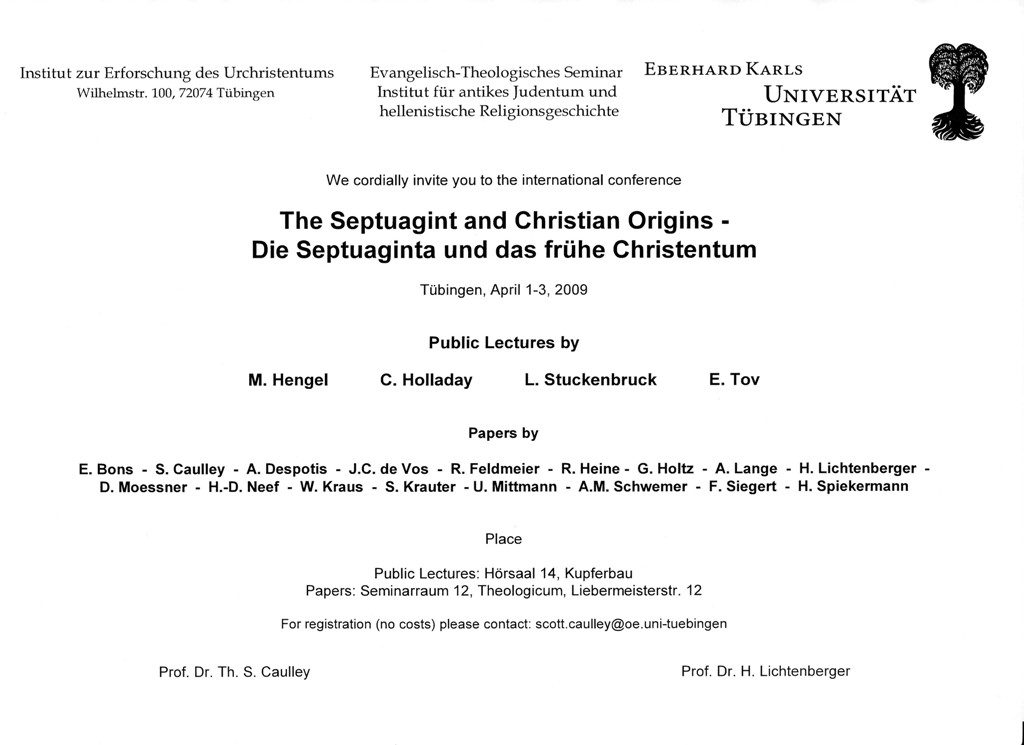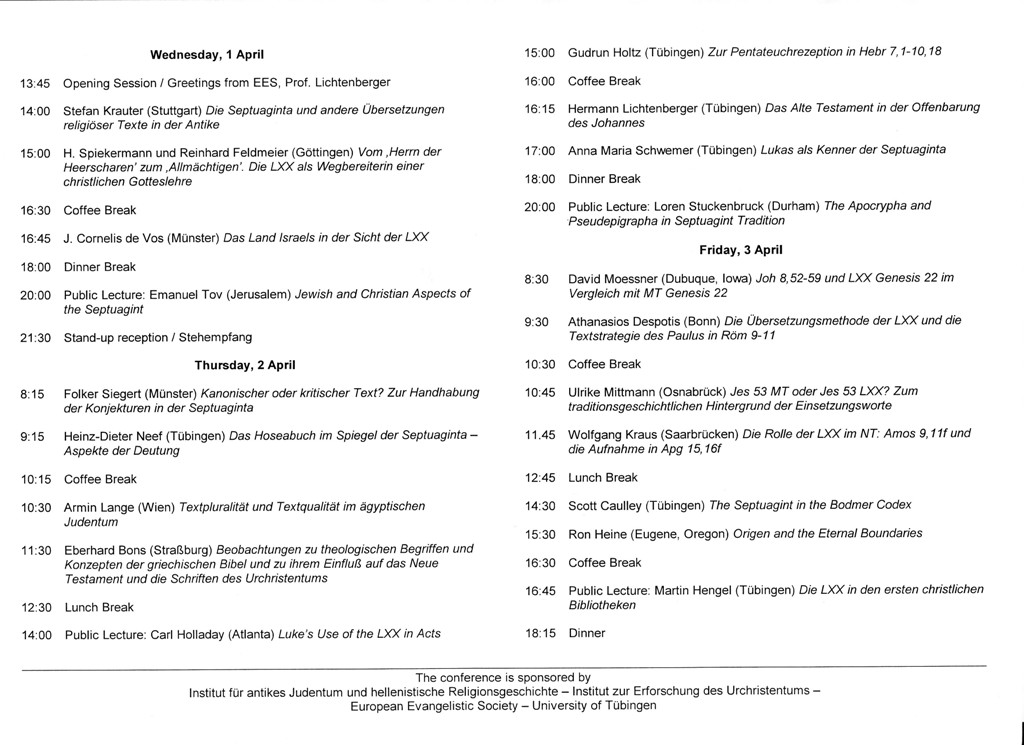My friend says (yes, I have friends! I pay well if people pretend to like me): Hi Chris!
Chris Tilling says: Hey mate!
Chris Tilling says: Got your e-mail, fantastic!! Was going to e-mail back shortly
My friend says: super
My friend says: oh no problem
My friend says: are you gonna be around?
Chris Tilling says: well, I will be in London but working. Would be great to see you though
My friend says: cool
My friend says: Well I have a question about the bible: For the first time yesterday I started to think that maybe not all of the NT texts say the same thing. Because of a lecture on Romans [at Tübingen University], I have been confronted with Paul's soteriology and teachings about justification. But then, and this is the point, I read James and I think Paul and James really don't say the same thing. On top of that, I read some more and it also seems that Matthew, Hebrews and Revelation don't really say the same thing about 'justification by faith alone'. So now my question is: Who should I trust? Is Paul the only one who is right? Does that mean that Matthew faked some of Jesus sayings, because they seem to contradict justification by faith alone?
Chris Tilling says: Great question! Now this leads to the heart of what is called 'biblical theology'. JB Caird used the metaphor of a discussion round a table, with all of the NT authors (and ours) being brought to the table in conversation. Another model would be to say one is right, another is wrong (canon within a canon - Luther); or again, some may try to harmonise the various voices, to make them all sound the same (to a certain extent represented by conservatives like John Piper - though this is not exclusively the realm of the conservative); others would suggest an organising principle around which various voices can be heard as distinct voices, yet not harmonised or allowed to fall apart into confusion (I generally like this approach). Is there another way? I could suggest a number of books on this subject (like James Mead, Biblical Theology; the Hafemann edited, Biblical Theology; Pate edited, The Story of Israel)
Chris Tilling says: ... but it really is more than just reading books, it is a journey we need to take with the text as part of our mission in the world
My friend says: Definitely! I feel like I'm just beginning to break out of an understanding of the bible that maybe doesn't fit what it was intended to be. But it seems scary and dangerous...it has soooo many implications. E.g. someone preaches about a certain text like James and makes a theology out of it, it can become very dangerous. But the breaking out is also very freeing because I always tried to harmonise all of it in some way, only to struggle hard every time I read some texts in Matthew which speak of a judgment according to works. On the other hand I don't know if I'm 'allowed' to question scripture like that. Thank you for the picture- that helps.
My friend says: What do you think: Does e.g. James say something different from Paul about justification?
Chris Tilling says: Well, there are ways of harmonising, but I tend to think they probably say different things, at least emphasise different things! But I still think James needs to be heard as part of canon. Oh yes, forgot to mention, we must not forget the dependency of the canon on the church and its rule of faith - a matter I think should inform our interpretation (cf. a couple of chapters in Max Turner ed. Between Two Horizons, I think by Wall [I later checked and the essays were indeed written by Robert Wall, "Reading the Bible from within Our Traditions: The 'Rule of Faith' in Theological Hermeneutics" and "Canonical Context and Canonical Conversations")
My friend says: but would you say that Paul stands a little bit above everyone else with his theology, at least that is what they perhaps seem to imply here in Tübingen
Chris Tilling says: I think that needs to be determined by the nature of the 'rule of faith' (cf. the Wall essays). I suppose I tend to see Paul as the primary witness to the Gospel in this respect, and James functions, together with John's letters and Jude, as a balance, a canonical counterbalance. What do you think? (I had in mind here a book by David R. Nienhuis's Not by Paul Alone, which I mentioned previously here)
My friend says: Well, for me James was veeery helpful and I'm glad he's in the canon, because only through reading him can I understood a little bit about what is so special about Paul. Also I think he is probably one out of many Jewish Christians at that time who were trying to find a way of how to bring their Jewish faith together with the faith in Jesus. For James it seems to me that he maybe didn't yet realise how lost we really are?!
Chris Tilling says: I like your honest historical approach, interesting thoughts
My friend says: What is difficult for me: If e.g. Matthew and Paul have a different view about how we get justified than one of them must be right, right? But by saying 'Matthew' we are actually talking about texts where is says: 'Jesus said: ....' So if I wouldn't believe in Matthew's way of justification, then what I'm really saying is that either Jesus didn't understand it aright or that he never said those words, which would mean that Matthew 'faked' them. Of course there are probably many other ways of interpreting Matthew that wouldn't necessarily contradict Paul, but here in Tübingen that is what's being taught. But why do they never talk about the implication of their claims?
My friend says: What do you think?
.... I will stop our conversation at this point – which I sadly had to leave anyway shortly after – and let his question address you: what do you think?














